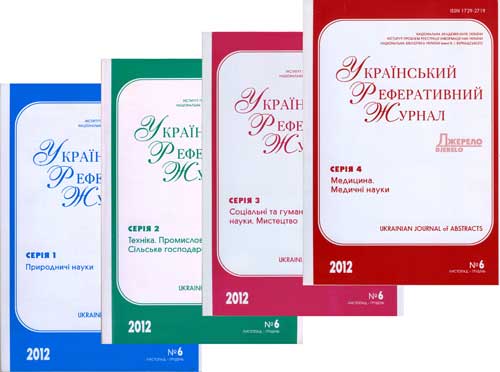РЕФЕРАТИВНА БАЗА ДАНИХ "УКРАЇНІКА НАУКОВА"
Abstract database «Ukrainica Scientific»
Бази даних
Реферативна база даних - результати пошуку
|
|
Пошуковий запит: (<.>ID=REF-0000145175<.>) | |||
|
Загальна кількість знайдених документів : 1 |
|||
Ugrumov M. V. Developing brain as a giant multipotent endocrine gland = Головний мозок, що розвивається, як гігантська ендокринна залоза з різнобічною дією / M. V. Ugrumov // Нейрофизиология. - 2005. - 37, № 3. - С. 257-270. - Библиогр.: 71 назв. - англ. The brain of adult mammals is composed of neuronal ensembles, which are intergrated in the course of synaptic transmission by chemical signals (CSs). Among them, there are classical neurotransmitters, neuropeptides, etc. In addition, neurosecretory neurons secrete the same CSs to the blood vessels in the brain areas lacking the blood-brain barrier (BBB), though their spectrum is greatly limited. According to the conventional conception, the brain lacks the neuroendocrine function over the ontogenetic period lasting from the genesis of neuronal units to the development of neuron-to-neuron synaptic connections (synaptogenesis) and BBB. Nevertheless, some recent data contradict this concept making reasonable its revision. When evaluating the functional significance of differentiating neurons, it should be borne in mind that CSs and receptors are expressed in the neurons just after their origin and long before the establishment of BBB. During this period, CSs are considered diffusive inductors of the brain development, which provide the paracrine regulation of the neuronal differentiation. Although this regulation is beyond doubt, some data do not agree with the concept. For example, the receptors of CSs are transiently expressed in many areas of the developing brain, though there are no neuronal sources of respective CSs in close vicinity. This might be explained by the CS transfer from the synthesizing neurons toward the target neurons via the circulation, i.e., due to the neuroendocrine autoregulation. According to our hypothesis, the neurons serve as endocrine cells, and the brain can be considered a giant multipotent endocrine gla nd providing the neuroendocrine regulation of the development of the brain itself and peripheral target organs over the period preceding synaptogenesis and the establishment of BBB. The term "giant multipotent" means that the spectrum of the brain-derived circulating CSs and their occupancy at the periphery in the developing organism should greatly exceed those in the adulthood. Gonadotropin-releasing hormone (GnRH)-producing and dopaminergic neurons, the most representative population of peptidergis and monoaminergic neurons were used for testing our hypothesis. According to the age dynamics of GnRH and dopamine (DA) in general circulation in rats, concentrations of the agents were sufficiently great for the regulation of the target cells before the establishment of BBB, but they dropped down to an undetectable level after the BBB appearance. Furthermore, the microsurgical lesion of most GnRH and DA-ergic neuron in the developing brain resulted in a dramatic drop of both CSs in the blood confirming that the brain is the principal but not the only source of circulating CSs. Potential targets for the brain-derived circulating CSs, including GnRH and DA, should be neurons and peripheral cells. For example, the gonads begin to express the GnRH receptors simultaneously with the onset of GnRH synthesis in the brain in fetal rats. The DA-sensitive cells in the developing organism are, e.g., represented by neurons of the suprachiasmatic nucleus in the brain and epithelial cells of the kidney. Both cell types transiently express D Ключ. слова: development, brain, neuron, receptor, chemical signals, neuroendocrine regulation Індекс рубрикатора НБУВ: Е60*739.177 Рубрики: Шифр НБУВ: Ж61875 Пошук видання у каталогах НБУВ | |||
| Національна бібліотека України імені В. І. Вернадського |
 |
| Відділ наукового формування національних реферативних ресурсів |
 |
| Інститут проблем реєстрації інформації НАН України |
Всі права захищені © Національна бібліотека України імені В. І. Вернадського